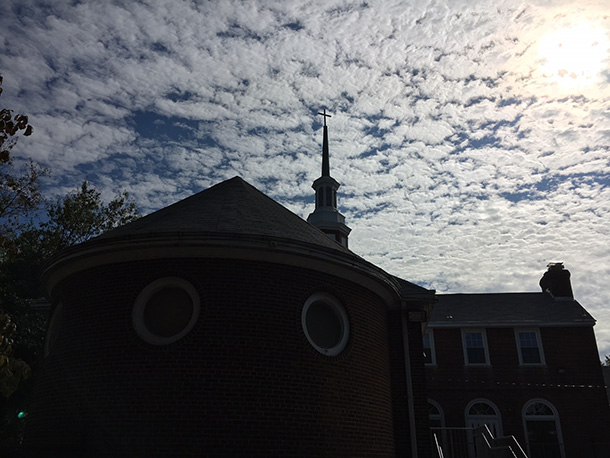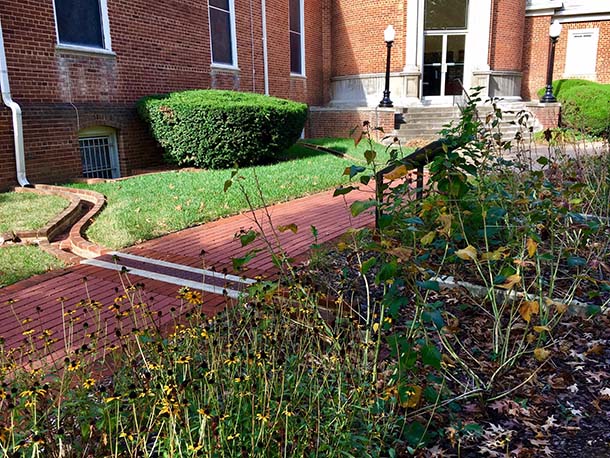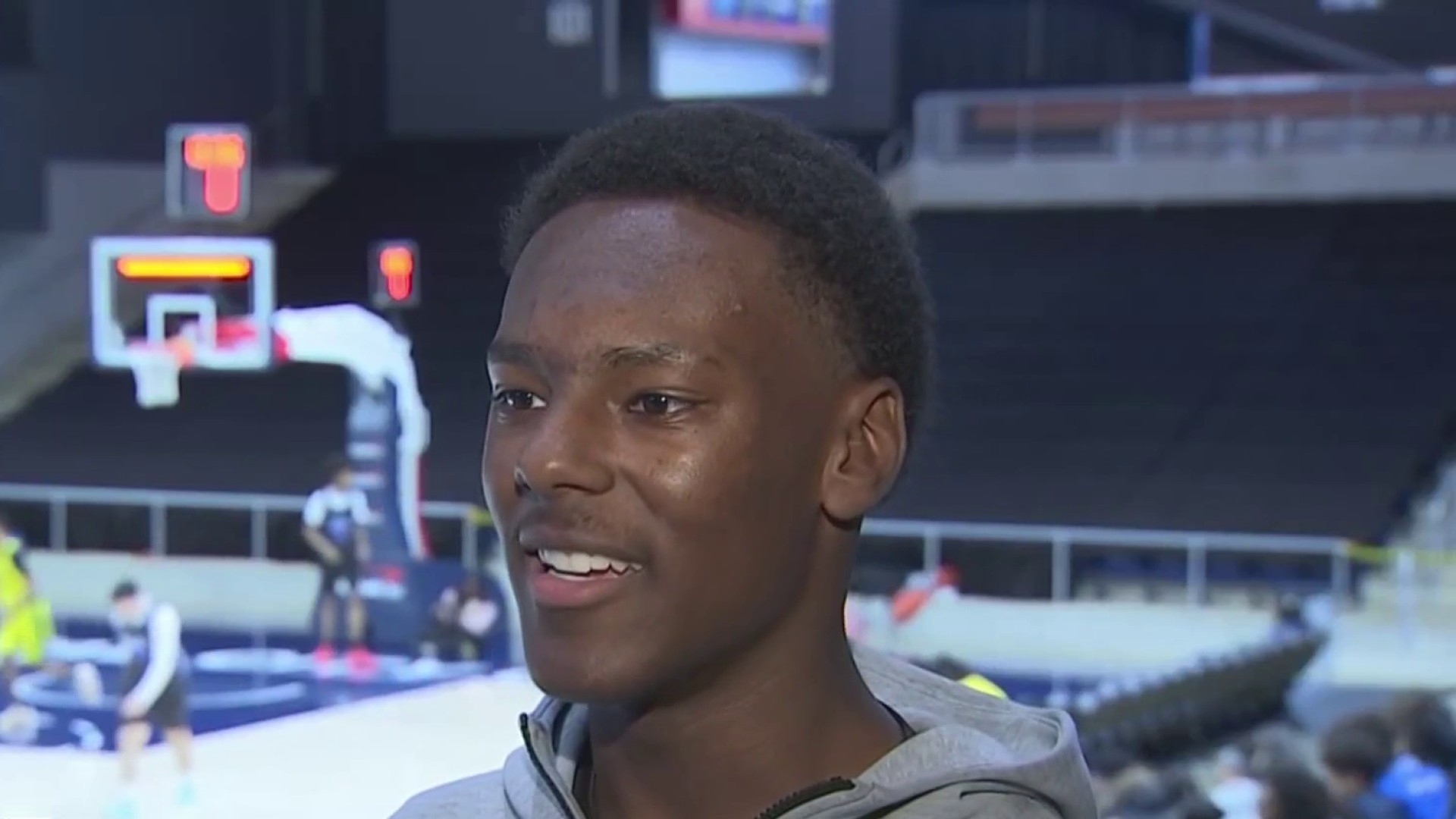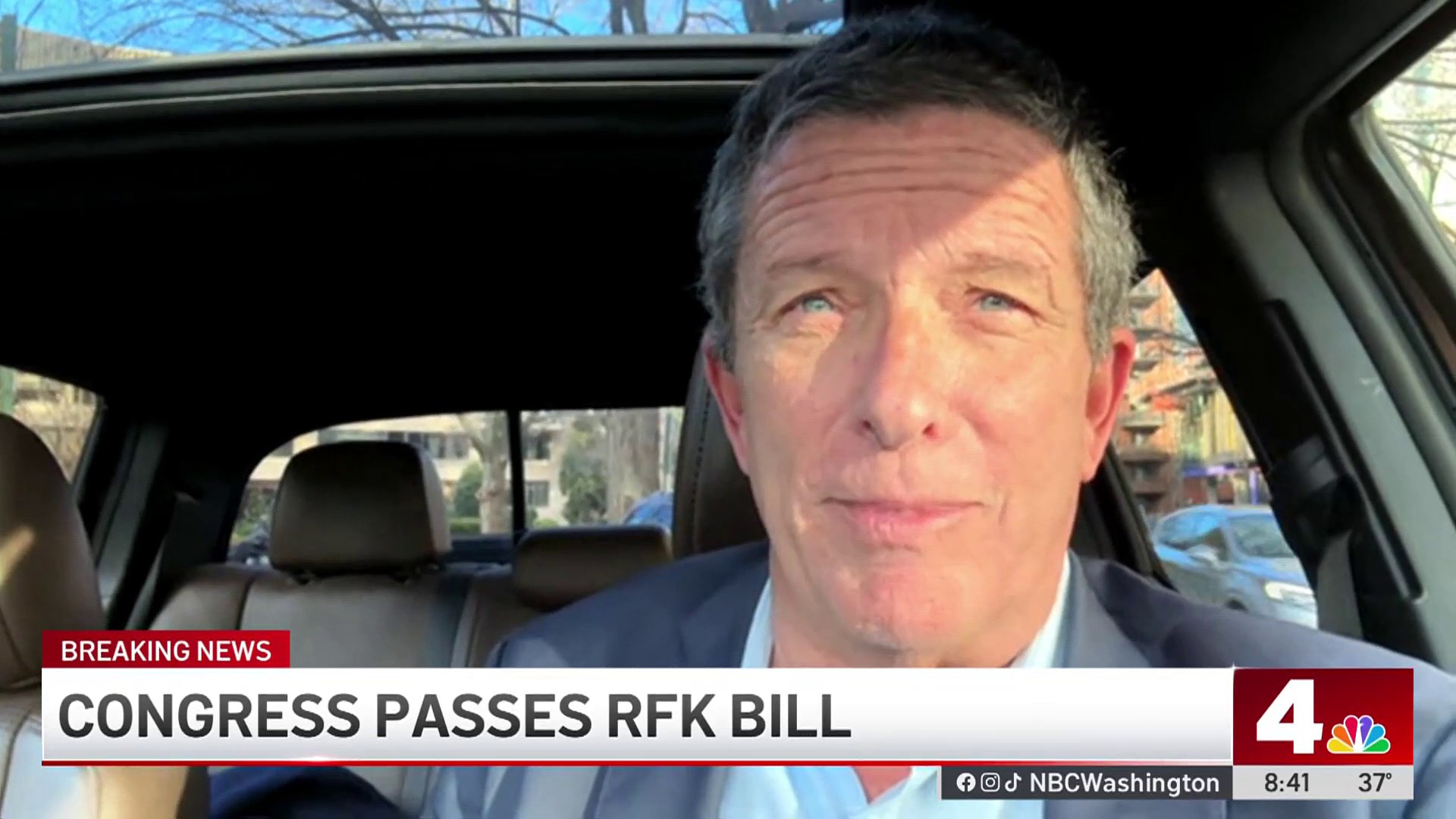Water bills are skyrocketing across the District by hundreds, even thousands, of dollars a month, and the News4 I-Team found it has nothing to do with how much water customers are using.
The fees are funding a multi-billion dollar project, and DC Water is charging each of its customers to pay for it.
A group of church leaders reached out to the News4 I-Team saying they could no longer afford to pay their growing bills, so we crunched the numbers and found Washington, D.C.'s faith community, which survives largely on donations, has already shelled out millions for these fees.
"It's dire, because we're looking at our budget now for 2018 and we can't balance it," Velma Wyman told the I-Team.
On Sunday mornings at the First Baptist Church on Minnesota Avenue, the members celebrate a higher power.
But it's the church's higher water bills that have Wyman on edge.
The church members pass the plate, but now, many of their donations can't go to the ministry or the long list of needed projects for the 144-year-old congregation.
Local
Washington, D.C., Maryland and Virginia local news, events and information
"Our people are very generous, and they will do that. but at a certain point, they don't have the money," said Wyman. "They're getting hit the same way we're getting hit."
Down the road, at Bethesda New Life Gospel Church, Pastor Jesse Richardson, Jr. is also getting hit.
"We started to notice this great big ol’ water bill all of a sudden," recalls Richardson, saying at first DC Water said the church must have a leak.
"They came by and they checked all the plumbing and these things, and one of the deacons happened to look at the itemized bill and say, 'Hey, what is this?'" Richardson said.

"We're Being Robbed Without a Gun!"
It's called the Clean Rivers Impervious Area Charge, or IAC, and it's on every DC water bill.
The fee pays for the building of large underground tunnels to keep sewage and stormwater from flooding our rivers. The project stems from a federal mandate to fix the environmental problem.
But when the News4 I-Team was flooded with complaints from across the District, we took a look at the money DC Water is charging customers for the project.
"It’s clearly made up, they gave absolutely no thought to the process or how much they would charge," said Richardson. "And I think it’s totally unfair."
DC Water does have a formula based on aerial photos of every D.C. property. Those photos are used to calculate the square footage of the buildings and any areas of concrete, like sidewalks or parking lots.
The thinking is the properties with the most concrete would contribute the most stormwater runoff and should pay more.
"Some churches in our least affluent communities are paying the most, like close to $50,000 at a Ward 8 church. How does that even make sense?" said Craig Muckle, with the Archdiocese of Washington, many of whose member churches are also at a breaking point.
The same is true for synagogues and mosques, where the main source of income is donations. And congregants who live in the District are also paying the fee on their own water bills at home.
"It’s not fair," said Muckle. "Some people are paying it twice, or three times if they happen to own a business."
For months the News4 I-Team filed records requests and crunched the numbers. The District's faith-based community has already paid more than $11 million just in Clean Rivers fees, largely because of their parking lots, which city law requires.
"When you build a church in District of Columbia, you have to have one off-street parking for every 10 members," said Pastor George Gilbert, Sr. of Holy Trinity United Baptist Church.
When the charge first started in 2009, it was so small, no one really noticed. Now some churches pay $6,000, $9,000, even $12,000 a month, just for the IAC fee.
"We’re being robbed without a gun," said Pastor Richardson. "You have to remember, we cannot charge, we cannot go up on our rates to allow people to come into the church."

"Unfortunately Someone's Got to Pay the Bill."
The News4 I-Team took the pastors' concerns to the head of DC Water, George Hawkins.
"It pains me to explain this to our ratepayers but it is the hard reality. We have a giant project. It's the biggest public works project in Washington, D.C., since Metro was built," he said.
Hawkins pointed out that one benefit of the current fee system is it allows DC Water to collect IAC fees from properties that are only parking lots, with plenty of stormwater runoff and no need for regular water service.
But Hawkins says he's aware the faith community and other non-profits are hurting, and it's something of great concern.
"One of the challenges we have in the District, perhaps more than most cities, is an enormous number of our customers are nonprofit," said Hawkins. "Government is nonprofit. We have every nonprofit known to humankind located here."
And some of those non-profits have not expressed any trouble paying the higher bills. So the board would have to consider how to help the ones who can't pay while making sure the ones who can don't get an unnecessary break.
"Every discount we give to one customer is money we have to raise from everybody else," said Hawkins, pointing out that regular homeowners, local business owners, even the government-owned buildings whose bills are paid with tax dollars will all have to make up the difference.
"We look at every option. And there aren't that many. Unfortunately someone's got to pay the bill," said Hawkins.

A $2 Credit on a $420 Fee
First Baptist Church of Minnesota Avenue has tried everything church leaders can think of to lower the fees.
In 2013, D.C.'s Department of Energy and Environment and the Anacostia Watershed Society helped build the church two rain gardens and funnel water from their roof. They also replaced a large section of concrete with porous pavers to limit the stormwater runoff.
"If we get a heavy rain, it looks like a little river coming through the channels here and there," said Wyman.
But the credit on the church's bill only amounts to $2.45 off of the $420 fee.
"Oh yeah, you feel good, but your purse doesn't feel good because it's costly," said Wyman.
And the I-Team found DC Water actually increased the church's fee, instead of lowering it.
"I think it's words, they say they're going to look at that. But looking at it and doing something about it are two different things," said Wyman, adding that churches could be forced to cut things like feeding programs, bookbag giveaways and holiday help for the needy -- things that really impact the community.
The I-Team found the average church is paying about $400 per month just for the IAC fee, which will continue to rise each year for the foreseeable future.
"It's a it's a painful reality for what is necessary to improve our system," said Hawkins. "My comment to any of those customers is we are aware of the issue and we know it's a challenge."
He committed that the board will thoroughly evaluate the hardship for churches and other non-profits, but that would likely not happen until the beginning of 2018 at the earliest.
"We understand their dilemma but it's hard, it's really hard on us," said Wyman.
Reported by Jodie Fleischer, produced by Rick Yarborough, and shot and edited by Steve Jones.



